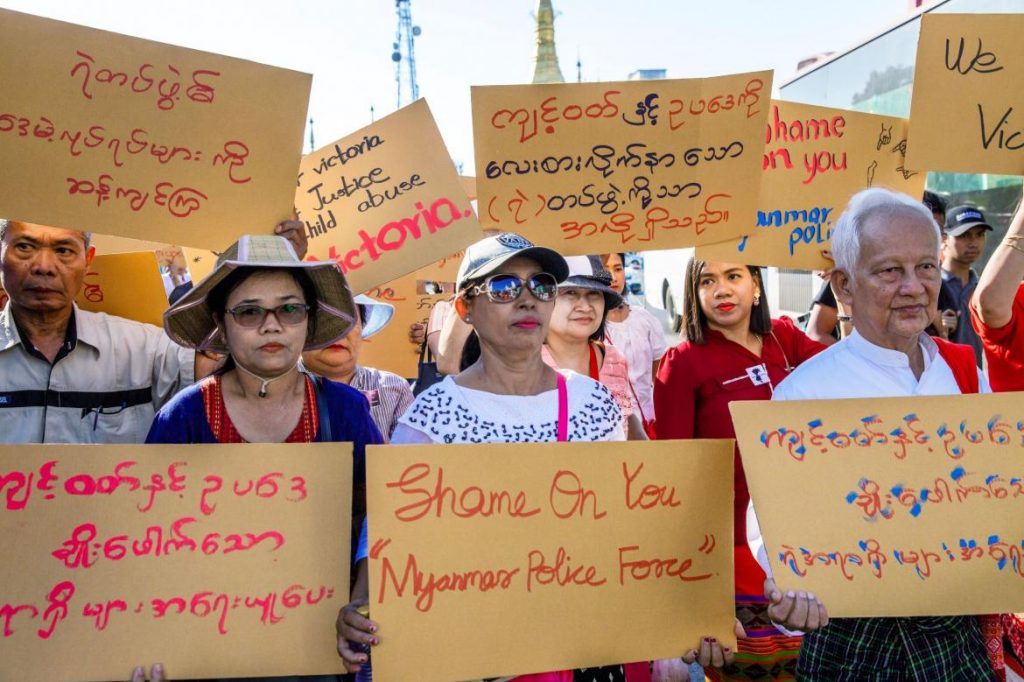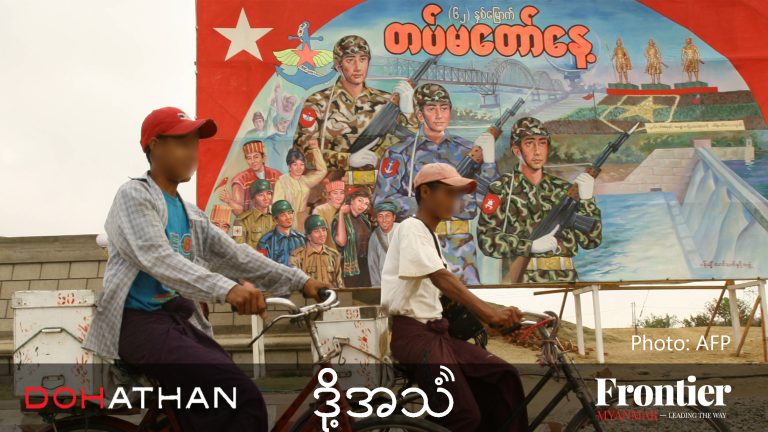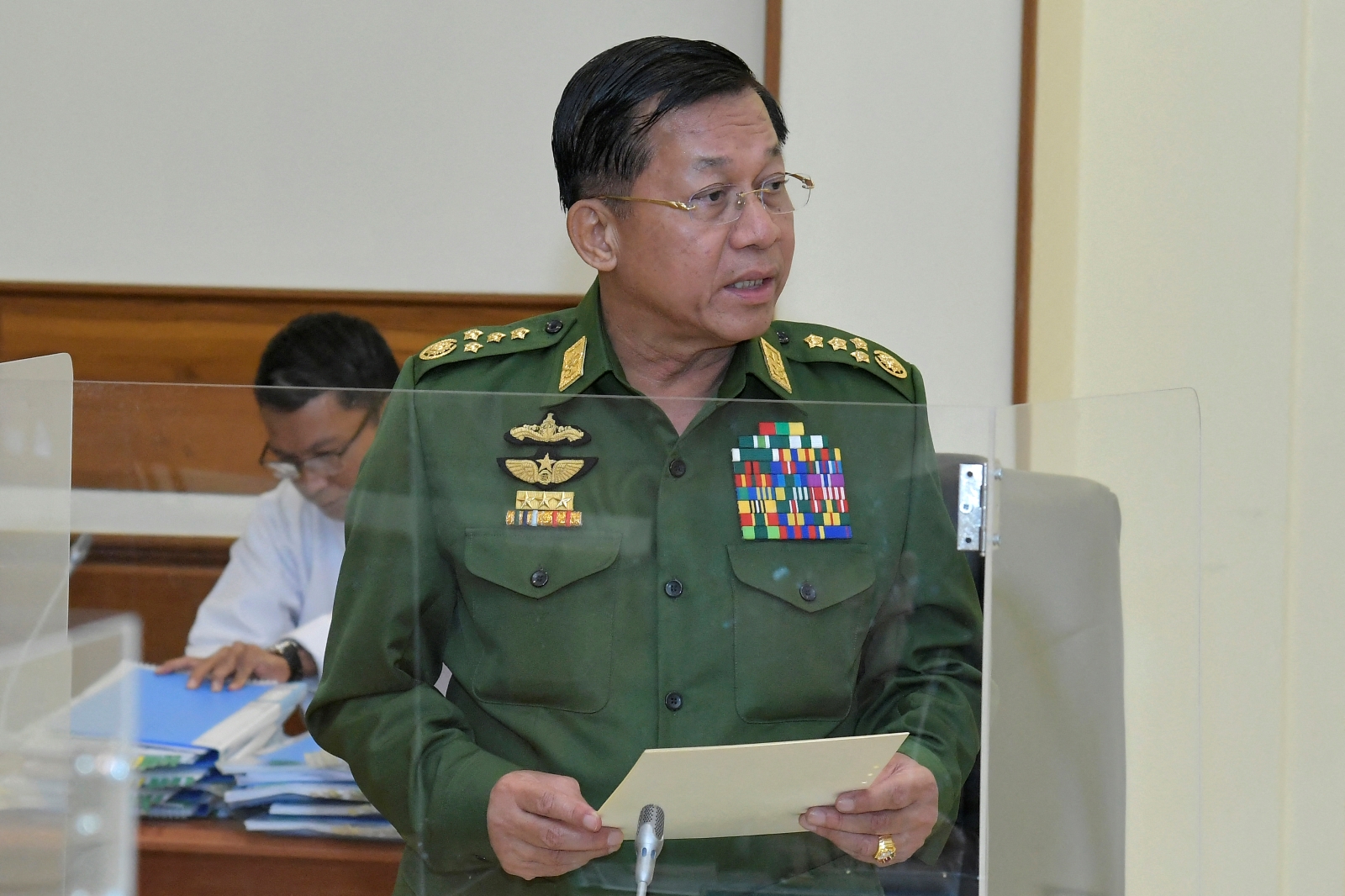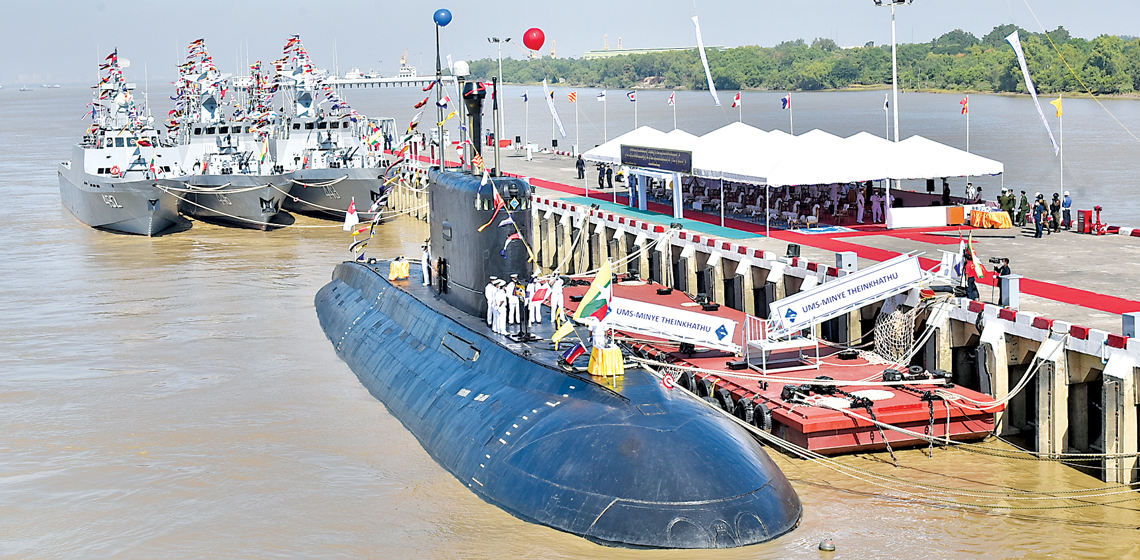The “Victoria” child rape case has laid bare the institutional failings of the Myanmar Police Force at a time when the government is also asking questions about the force’s conduct.
By SITHU AUNG MYINT | FRONTIER
SINCE DECEMBER 23, there have been demonstrations in Yangon, Mandalay and other cities amid public disgust at a Myanmar Police Force news conference held after charges were dismissed against the defendant in the “Victoria” toddler rape case.
The case concerns the rape of a two-year-old girl at a private nursery school in Nay Pyi Taw last year, who was later dubbed Victoria as part of a social media campaign.
There has been dissatisfaction over the way the police had handled the case since it came to light last May, but this turned to anger when senior officers revealed at the December 19 news conference the name and address of the victim and her parents, in apparent breach of the Child Rights Law.
The news conference came a day after the Dekkhina District Court in Nay Pyi Taw dismissed charges against Ko Aung Kyaw Myo (aka Aung Gyi), a driver employed by the supervisor at the school the girl attended, because of a lack of evidence. There was also public anger that documents relating to the case were posted on the MPF’s “Ye Zarni” Facebook page on the day of the news conference, before being taken down.
Support more independent journalism like this. Sign up to be a Frontier member.
The public protests against the MPF came after State Counsellor Daw Aung San Suu Kyi met senior MPF officers in Nay Pyi Taw on December 18 and urged them to be loyal to the government. In a wide-ranging speech, Aung San Suu Kyi also spoke about the deterioration of law and order in Rakhine State, the different roles of the MPF and the Tatmadaw, corruption within the MPF, narcotics trafficking, and the need for the MPF to take steps to build public confidence in its ability to provide security and peace.
In Rakhine, the Tatmadaw and the MPF are fighting against the well-armed Arakan Army, which says it wants autonomy for the Rakhine people. The AA needs a lot of firepower, including small and heavy weapons and ammunition, to maintain its campaign in Rakhine. The AA was originally based at the Laiza headquarters of the Kachin Independence Army, on the border with China. Other groups aligned with the AA are also based on or near the Chinese border. This means that the weapons being used by the AA are transported from the border with China across Myanmar to Rakhine. The fact that thousands of weapons can be taken across the country to supply the AA in Rakhine is an example of the weakness of the MPF and shows how its capacity has deteriorated. In earlier times, when a forerunner of the AA was based on the border with Thailand, it would have been impossible for a Rakhine ethnic armed group to supply weapons to its forces on the other side of the country.
The Tatmadaw and the MPF also appear powerless to stop the AA from abducting members of parliament, prominent members of the National League for Democracy and public servants, including immigration officers. Even in Sittwe, the state capital, the police are not effective at maintaining law or order.
In her December 18 meeting with senior MPF officers, the state counsellor also raised the issue of drug trafficking. All kinds of narcotics produced in border areas near China and Thailand are transported in huge quantities across the country to Rakhine, from where they are trafficked into Bangladesh. Other shipments are sent to international markets through Thailand, or via the coasts of Mon State or Tanintharyi Region. Recent MPF seizures of millions of methamphetamine tablets, abandoned by traffickers, have highlighted the scale of the problem. The trafficking and the availability of narcotics raises questions about the capacity of the MPF to confront the drug trade.
And then there’s corruption. In one recent case in northern Shan State’s Lashio Township, three police officers were themselves arrested after they detained a man on bogus drug charges and demanded a ransom for his release.
Aung San Suu Kyi also spoke about the fundamental difference between the MPF and the Tatmadaw. Under successive military governments, the MPF was regarded as a reserve force and Tatmadaw officers with no experience in policing were appointed as police officers, a role they rarely took seriously. As a result, the ability of the MPF to function effectively in investigating and preventing crime deteriorated steadily.
Doubt over the ability of the MPF has also grown because of the legal cases reported by the media in which evidence presented by the police was unreliable and weak, but defendants received long prison sentences. In the Victoria rape case, the evidence submitted by the police to the court was neither reliable nor strong. The defendant, who many believed was a scapegoat, was acquitted after the court heard testimony from 19 witnesses.
Few citizens believe the MPF is properly fulfilling its duty to provide public security and maintain law and order; major reform of the institution is essential if it is to win the public’s trust and confidence. However, whether the MPF accepts the guidance provided by Aung San Suu Kyi in her December 18 speech, and whether it is willing to reform itself, is open to question.
The MPF is part of the Ministry of Home Affairs, which under the 2008 Constitution is headed by a serving Tatmadaw officer nominated by the commander-in-chief.
It’s open to interpretation whether the MPF must remain under Tatmadaw control. It it is not explicitly stated, but section 338 says, “All the armed forces in the Union shall be under the command of the Defence Services.” Section 339, meanwhile, says the defence services “shall lead in safeguarding the Union against all internal and external dangers”.
Regardless, the constitution does grant the Tatmadaw autonomy to manage its own affairs, which for now at least include managing the police force.
Given this, how can there be any certainty that the MPF will be loyal to the elected government and initiate or submit to reform in line with the guidance provided by the state counsellor?







